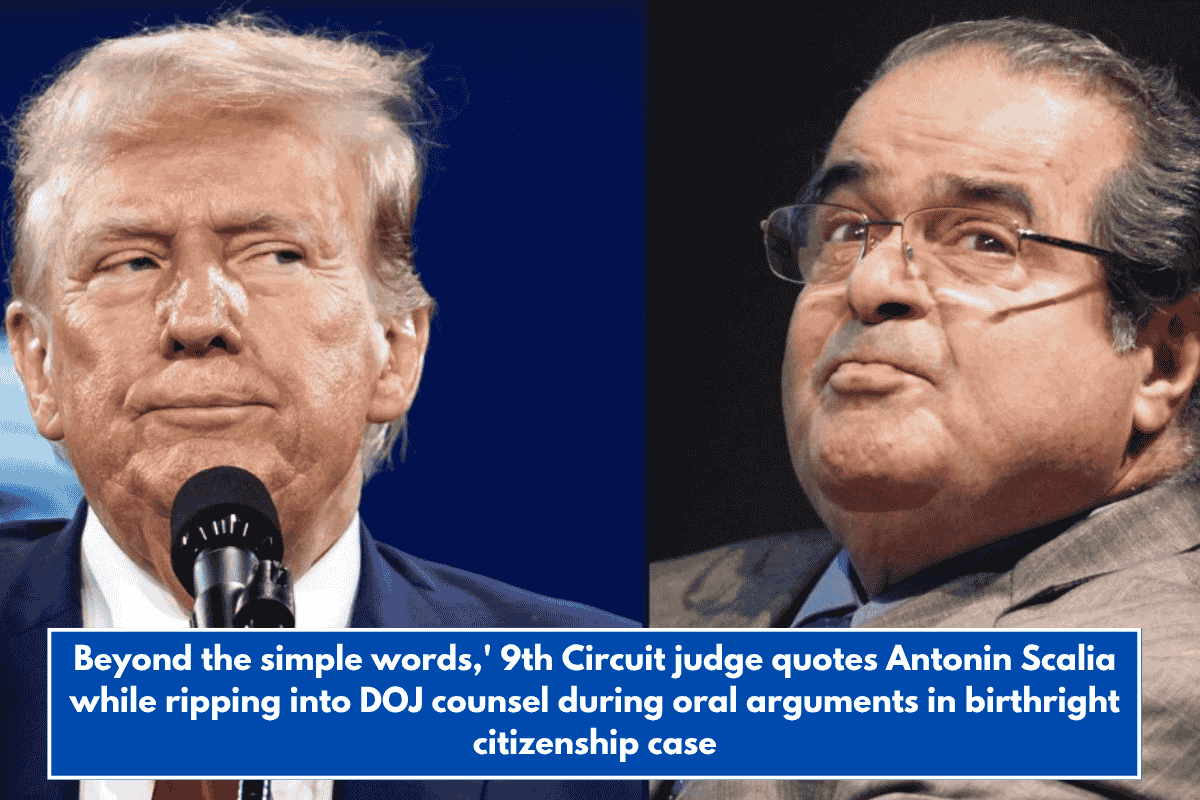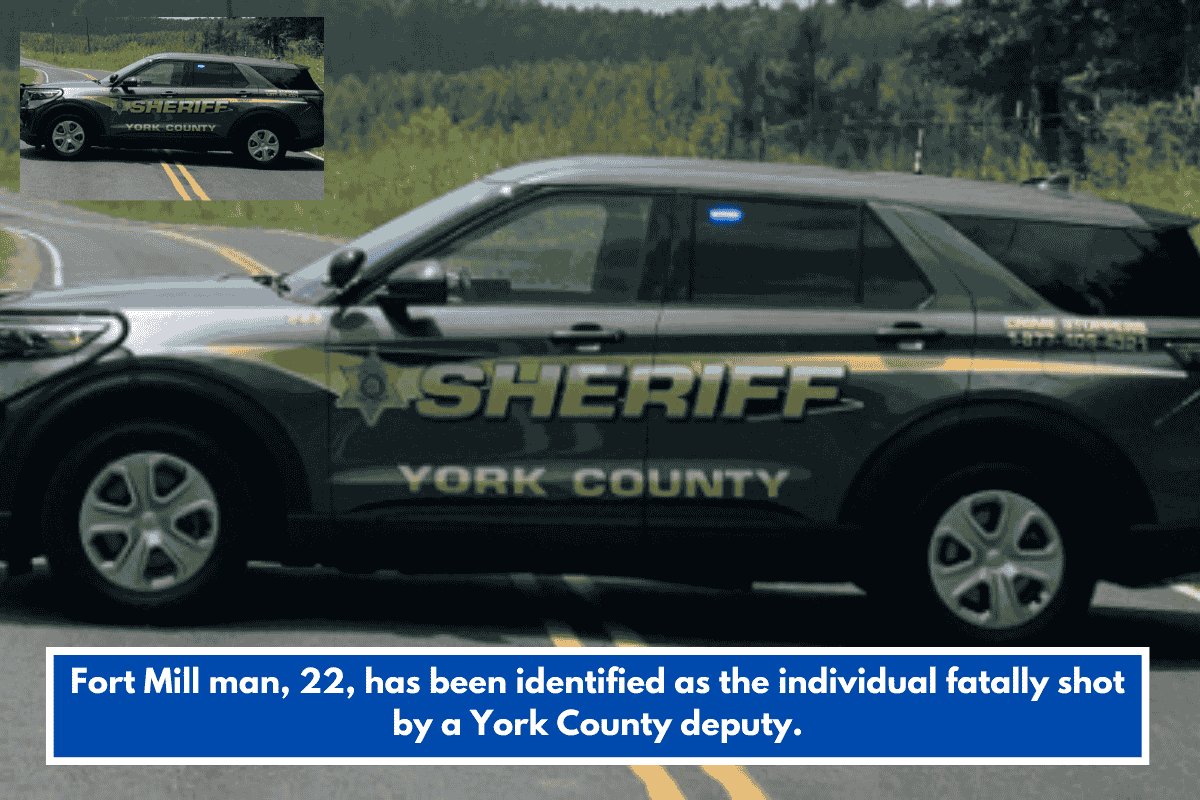During a recent oral argument in a case about President Donald Trump’s attempt to rewrite birthright citizenship laws, the late U.S. Supreme Court Justice Antonin Scalia’s influence on constitutional interpretation came up in a tense exchange. As the case was being heard before the U.S. Court of Appeals for the 9th Circuit, government attorney Eric McArthur faced pointed questioning from the judges, especially on how to interpret the 14th Amendment’s citizenship clause. Among the key moments was when Judge Michael Daly Hawkins brought up Scalia’s famous textualist approach, leading to a crucial challenge against the Trump administration’s arguments.
The Case: Birthright Citizenship and the Trump Administration’s Efforts
At the heart of the case were President Trump’s efforts to redefine the concept of birthright citizenship, specifically questioning whether the children of undocumented immigrants should be granted automatic U.S. citizenship. The government argued that for someone to be eligible for birthright citizenship, their parents must be domiciled in the United States. This idea introduced a new requirement—one that was not explicitly written in the 14th Amendment itself. The judges, however, seemed skeptical of this argument, which was based more on political and historical interpretations than the actual text of the amendment.
The Role of Scalia’s Textualist Philosophy
During the hearing, Judge Michael Daly Hawkins questioned McArthur on Justice Scalia’s likely view on the issue, particularly Scalia’s well-known textualist approach to constitutional interpretation. Scalia, who was known for advocating that judges should rely strictly on the text of the law, would likely have opposed looking beyond the written words of the 14th Amendment. This posed a challenge for the Trump administration’s argument that “domicile” and “political jurisdiction” were necessary to understand the amendment’s provisions.
In a quiet but pointed moment, Judge Hawkins asked McArthur about his time as a clerk for the U.S. Supreme Court, particularly whether Scalia, who was on the court at the time, would have agreed with the approach that the government was taking in this case. McArthur responded that Scalia would have considered historical context, but Hawkins pressed further by reminding McArthur of Scalia’s views on interpreting laws based solely on their plain language.
The Debate Over “Jurisdiction” and “Domicile”
The government’s argument that the 14th Amendment’s language requires an understanding of “domicile” and “political jurisdiction” was scrutinized throughout the session. The government lawyer, McArthur, attempted to argue that “subject to the jurisdiction” in the 14th Amendment meant being under the full political jurisdiction of the U.S., not just the regulatory jurisdiction. However, the judges noted that the text of the amendment does not explicitly mention “domicile” or “political jurisdiction.”
This led to further discussion about the interpretation of “subject to the jurisdiction thereof,” which the government connected to an 1884 Supreme Court ruling. However, the panel expressed discomfort with this interpretation, pointing out that it seemed disconnected from the actual wording of the 14th Amendment.
A Focus on History Versus Text
One of the critical moments in the hearing came when Judge Gould asked McArthur if any late 1800s dictionaries defined “jurisdiction” in a way that connected it to allegiance. McArthur admitted that he was unaware of any dictionaries that supported this interpretation. This further underlined the tension between historical debates and textual interpretation that was central to Scalia’s approach.
The government’s reliance on 19th-century congressional debates about the 14th Amendment, including arguments about excluding Native Americans from citizenship due to their allegiance to tribal nations, was another point of contention. However, the court appeared unpersuaded, with Judge Hawkins recalling Scalia’s firm belief in interpreting the Constitution through the lens of its actual text, without delving too deeply into legislative history or external commentary.
A Battle of Constitutional Interpretations
This court session underscored the continuing debate over how to interpret the Constitution, particularly in the context of modern legal and political issues. Scalia’s textualist philosophy, which advocates for looking at the words of the law as they were understood at the time of their drafting, was a powerful tool in challenging the Trump administration’s arguments about birthright citizenship. As the case progresses, the tension between historical context and textual interpretation will continue to shape the legal battle over birthright citizenship and the broader implications for constitutional law.














